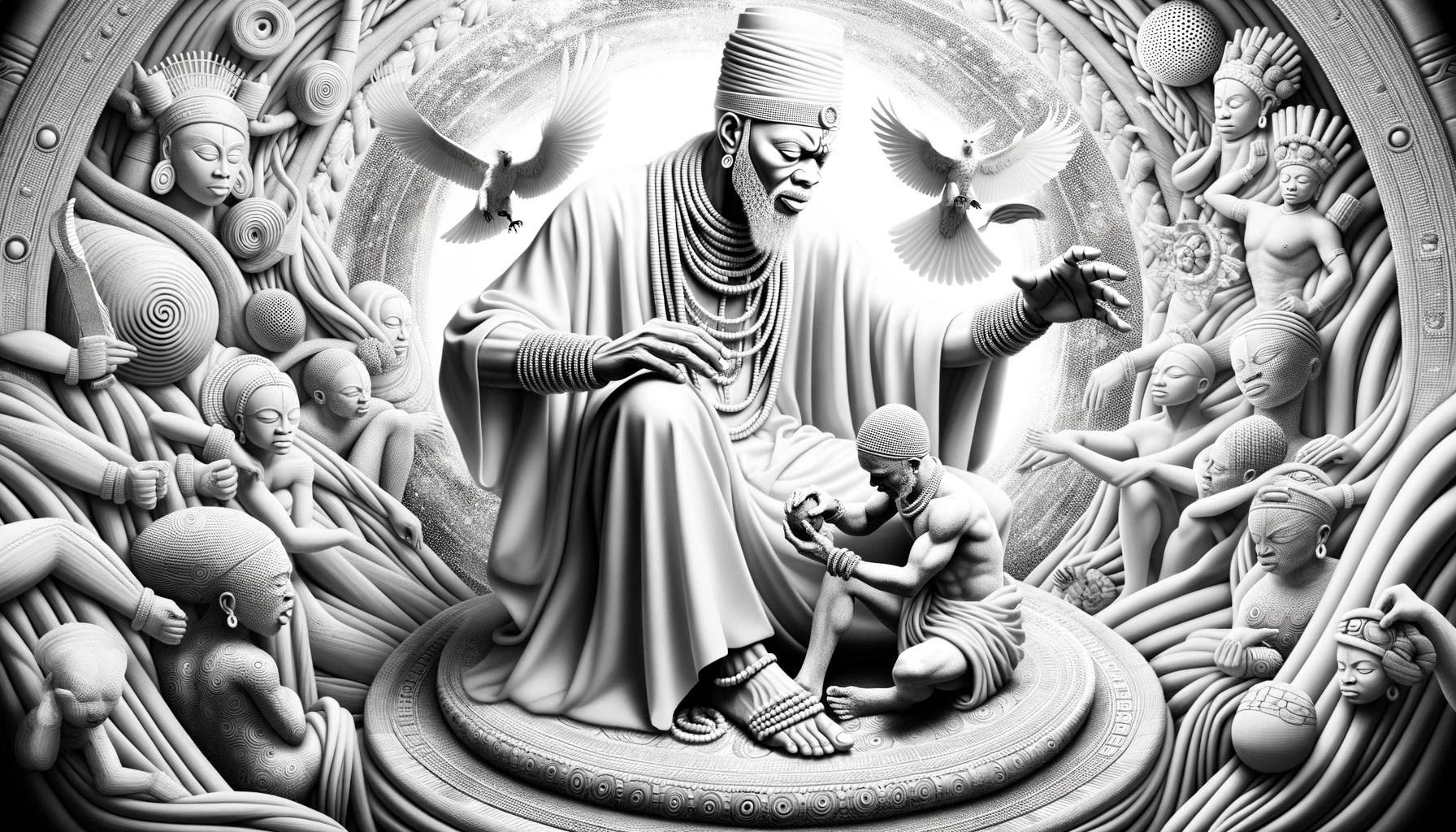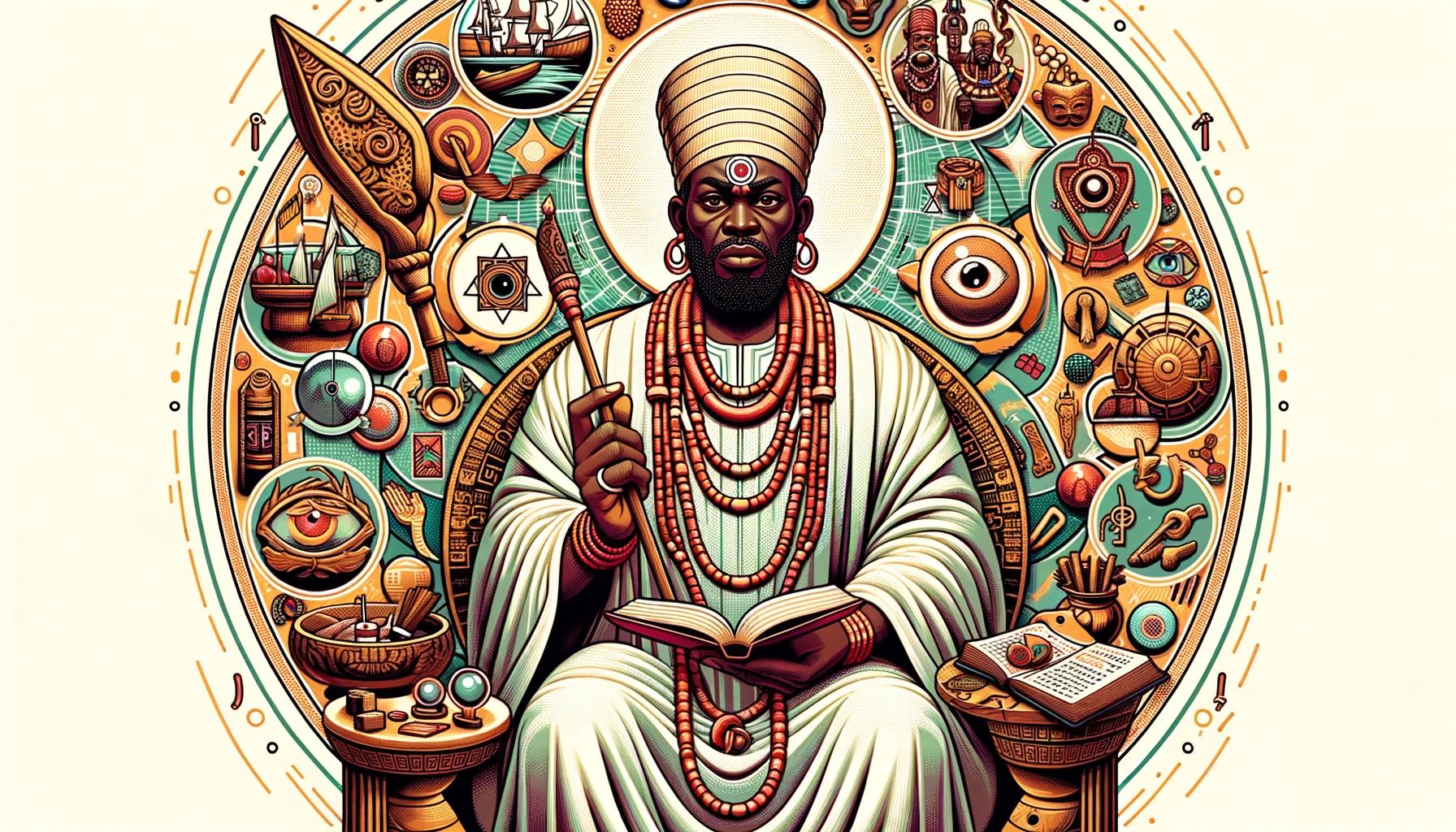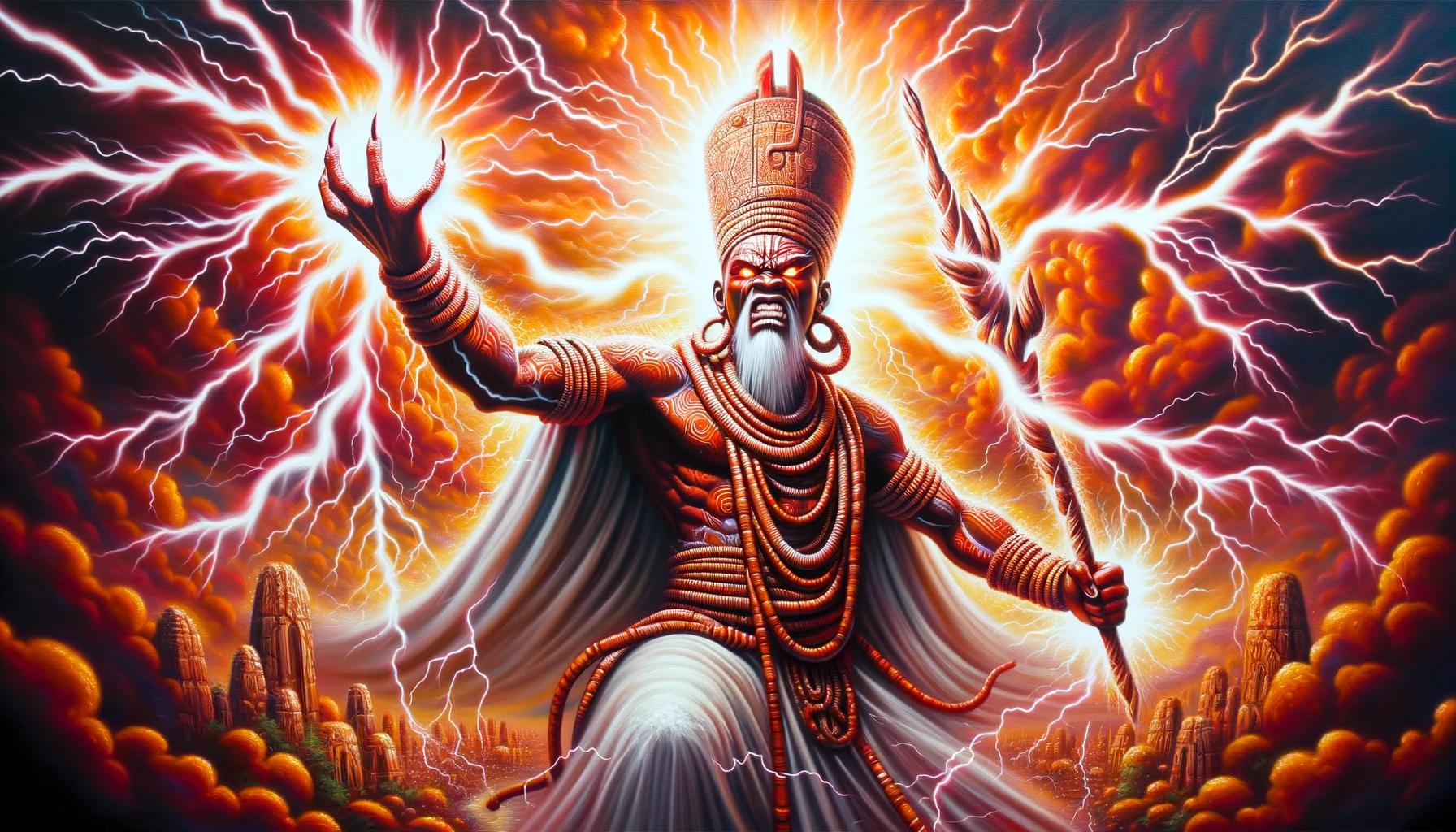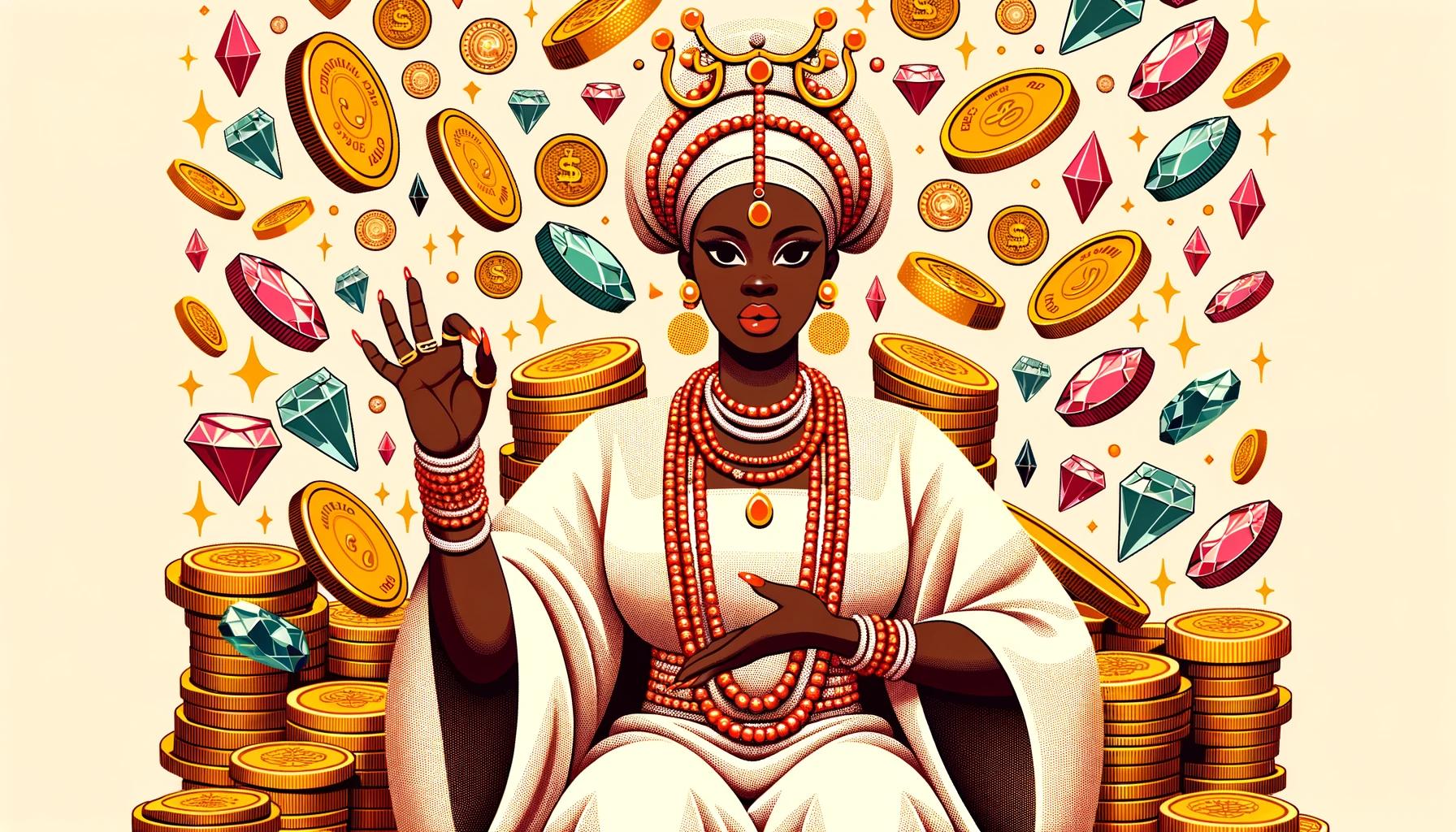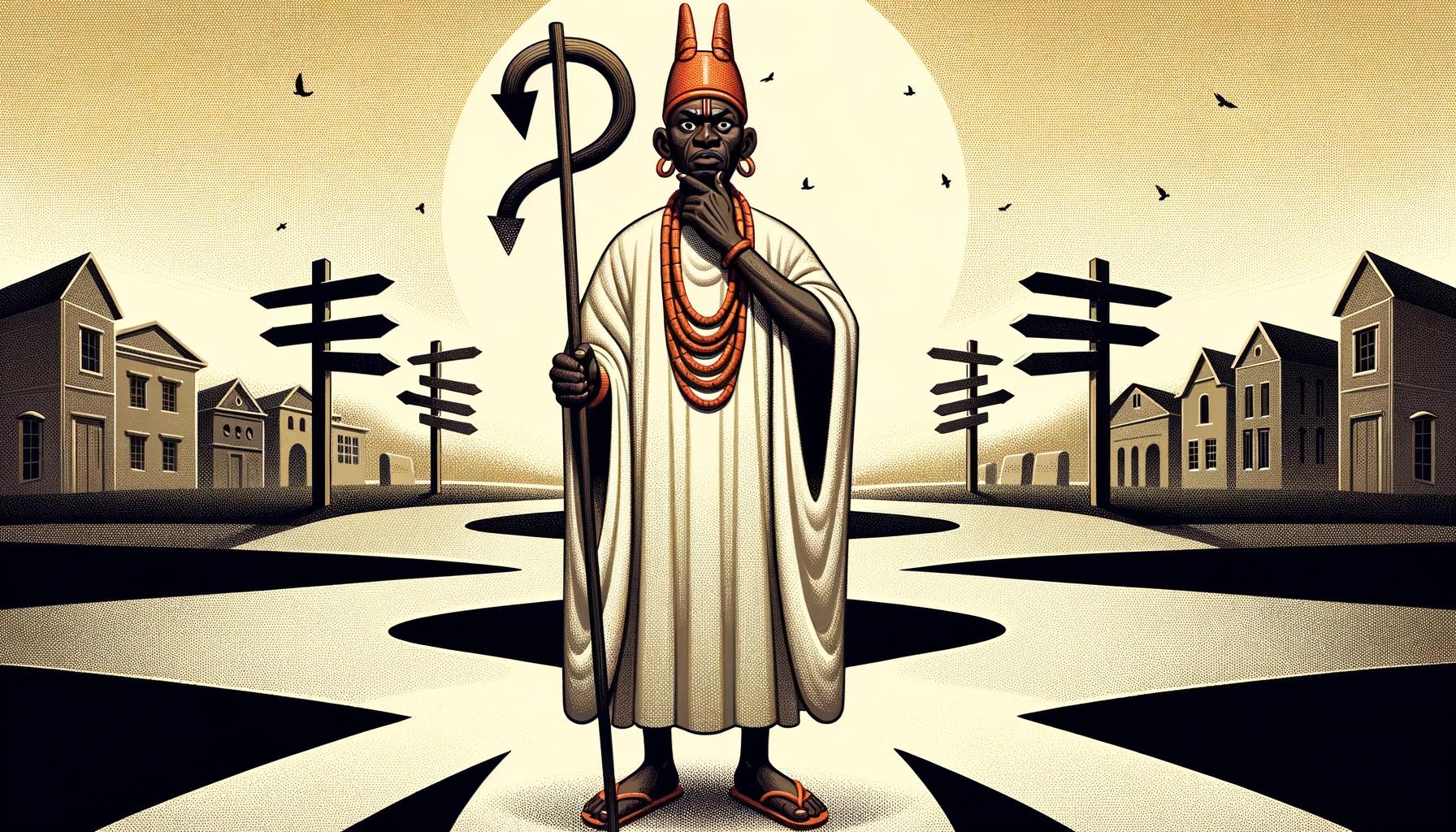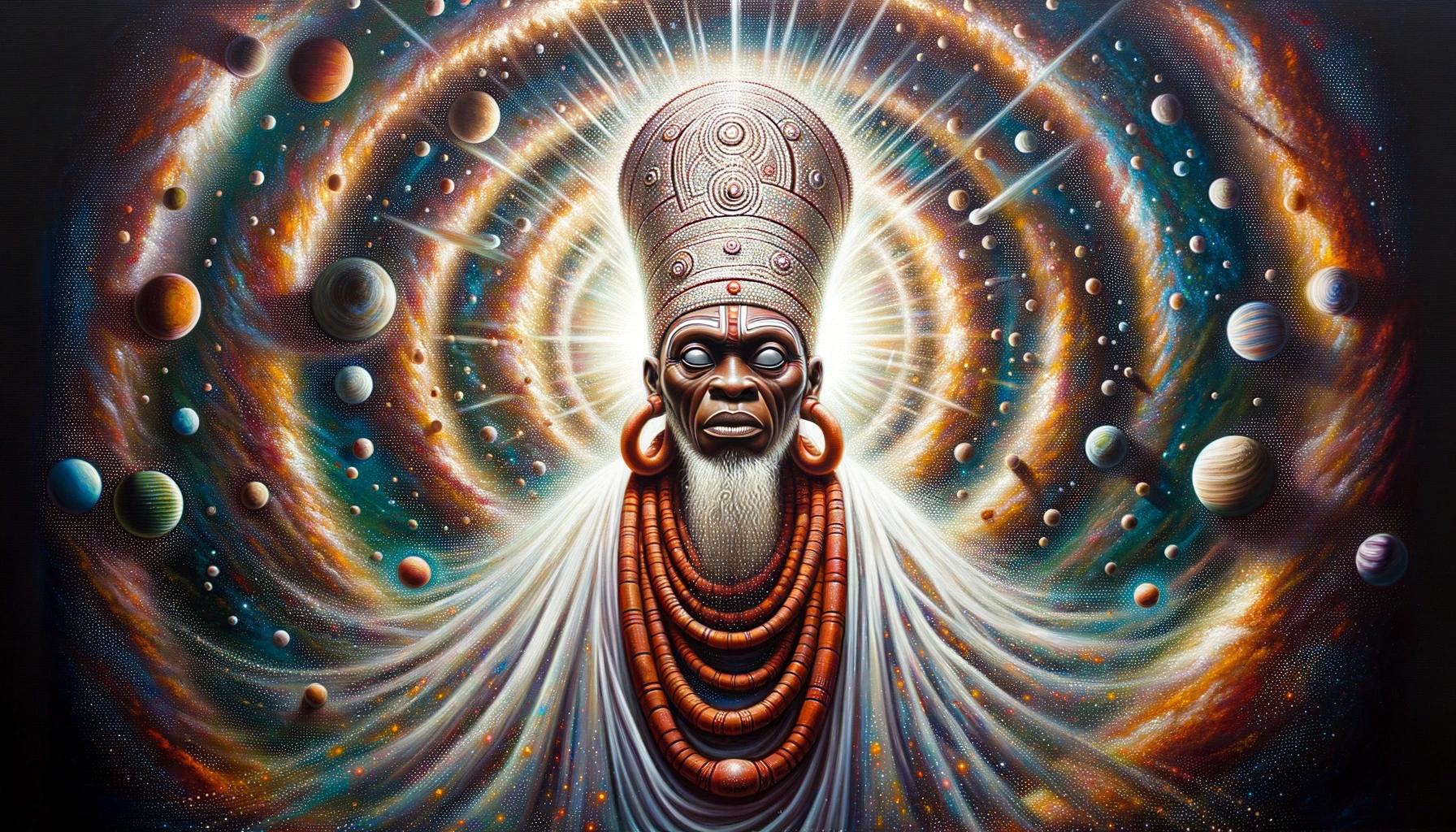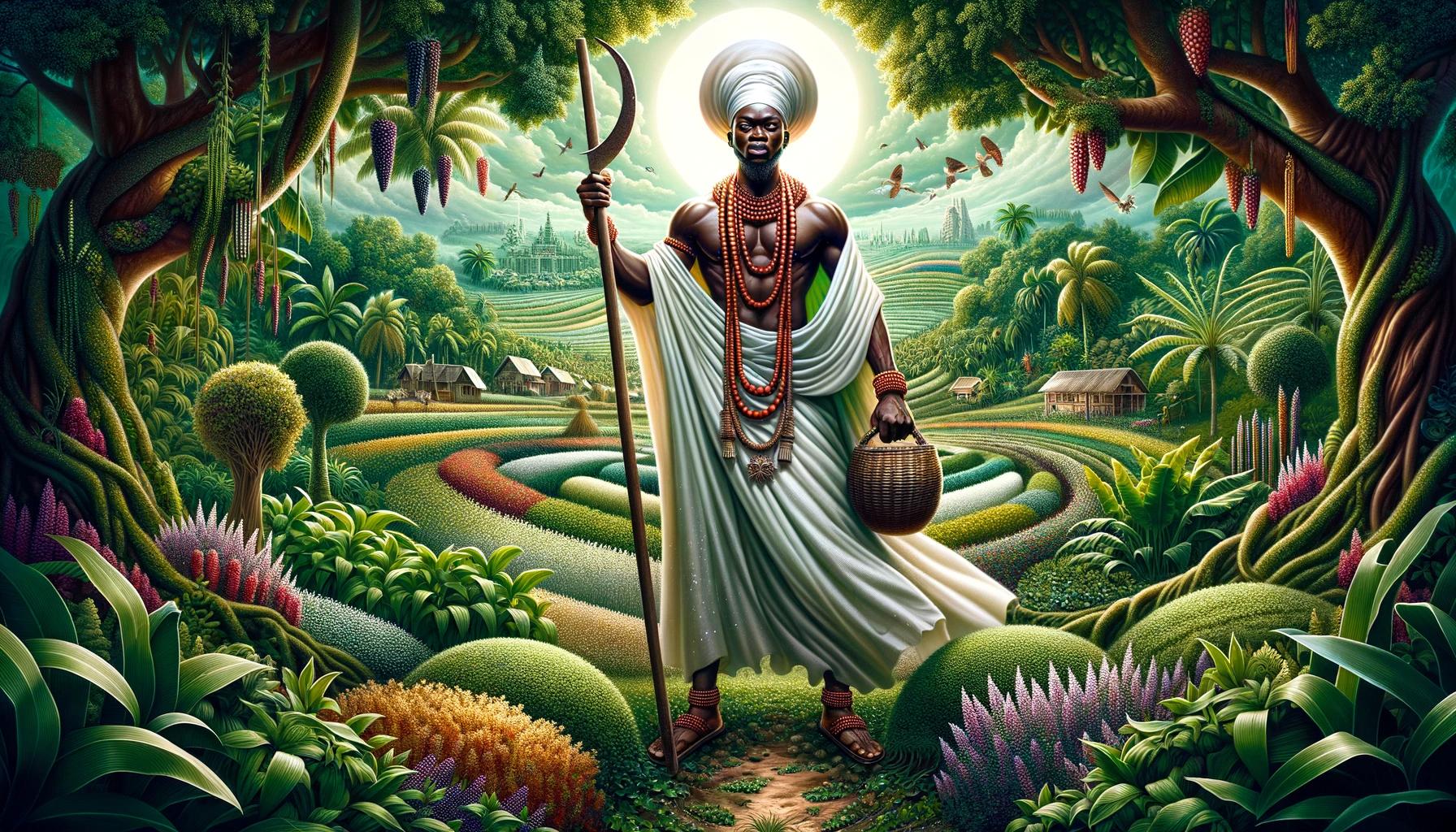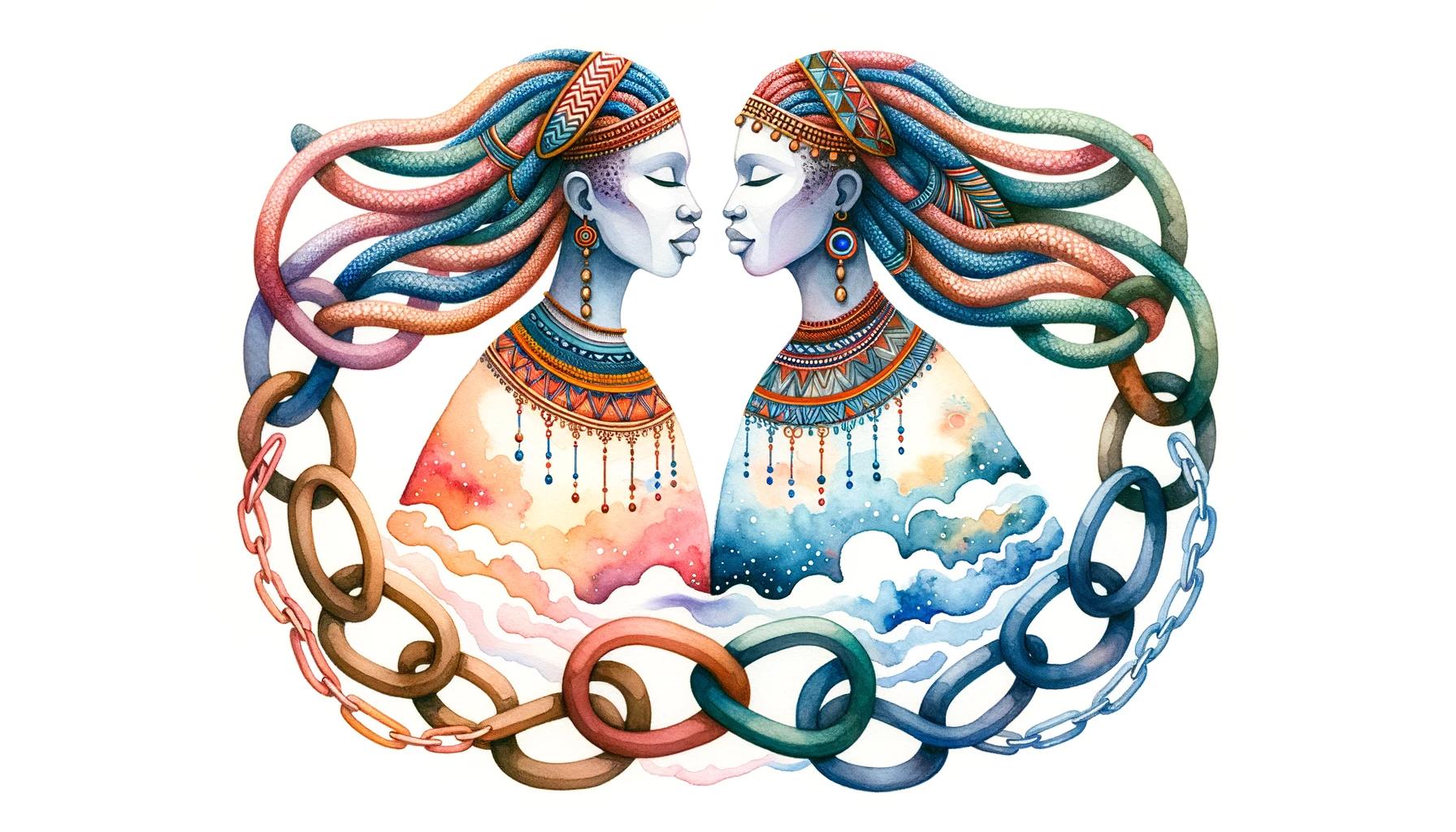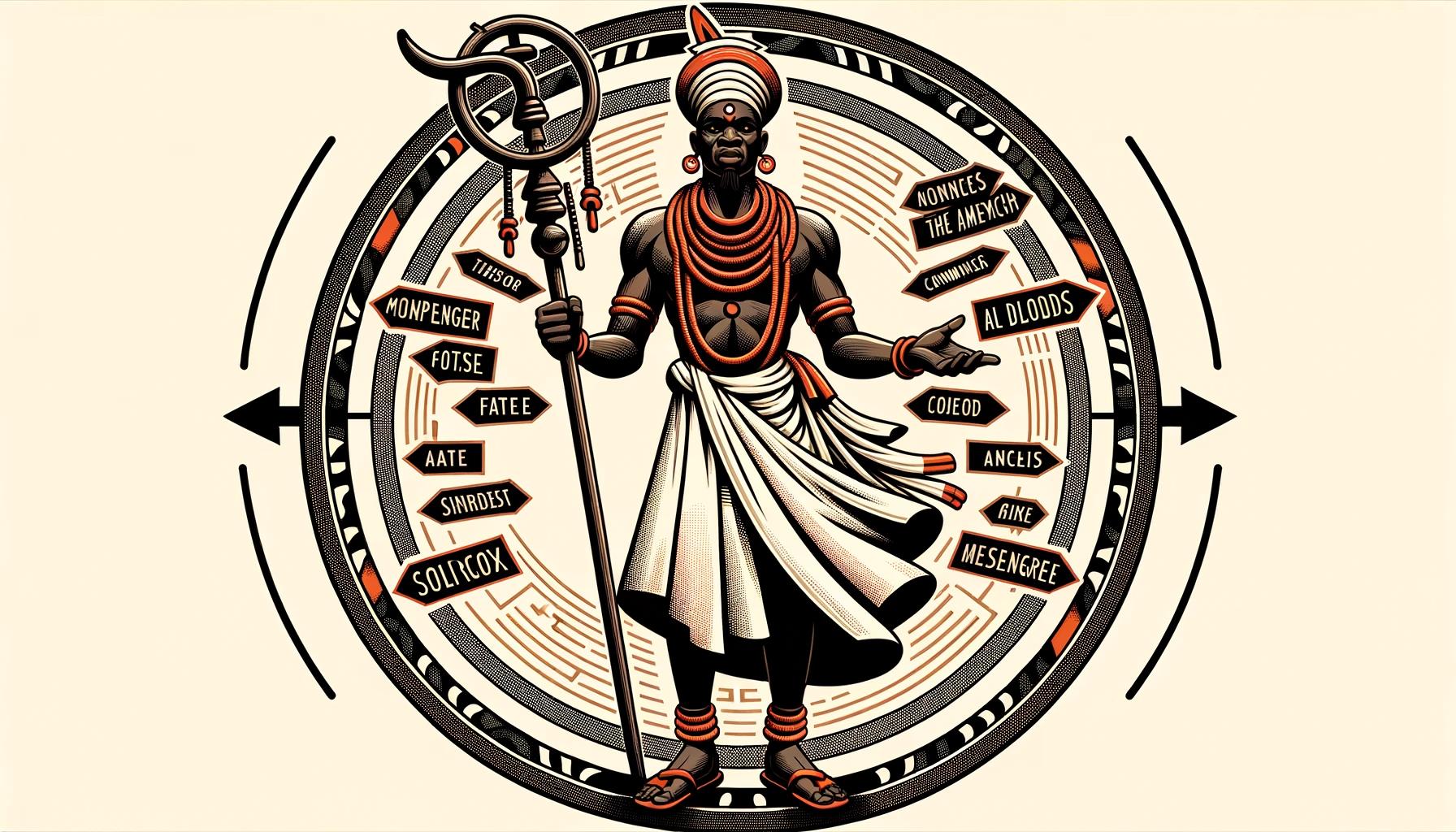Obatala African God: Exploring the Divine Deity of Peace and Purity
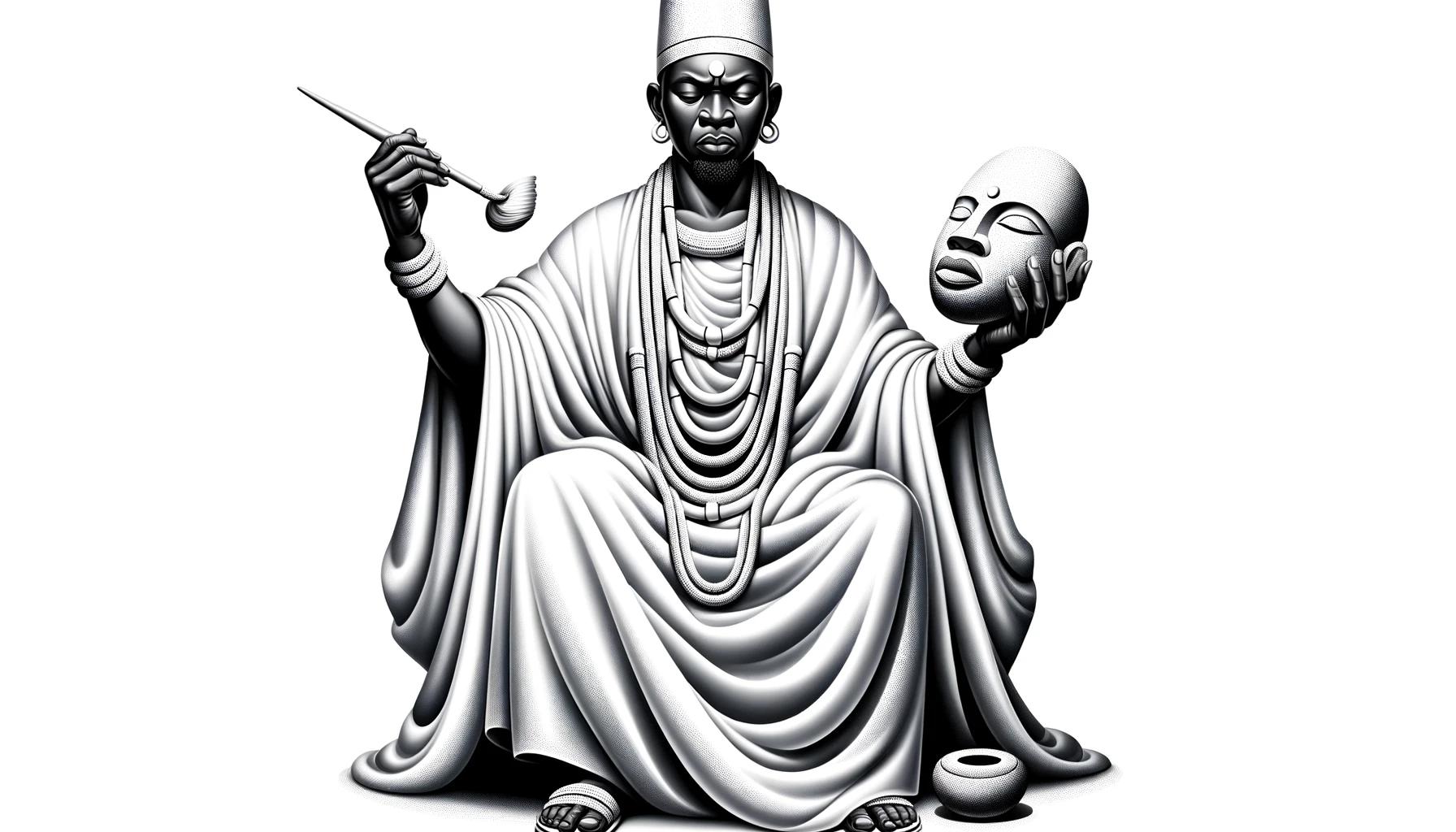
Obatala African God is a central figure in Yoruba mythology and holds significant importance in African spirituality. As the creator of the Earth and all beings, Obatala represents peace, purity, and compassion.
His story involves both primordial and mortal aspects, showcasing his role as the father of all orishas. Obatala’s influence extends to Santeria, a syncretic religion that combines African and New World faiths.
This article explores the origins of Obatala, his symbolism, festivals, and rituals, as well as his impact on the African diaspora.
Obatala African God: Exploring the Divine Deity
In this section, we delve into the fascinating world of Obatala, an African god of immense importance in Yoruba mythology and African spirituality.
From his origins and significance in Yoruba culture and religion to his fusion with the New World faith of Santeria, we explore the multifaceted role of Obatala in African spirituality and the African diaspora.
Introduction to Obatala and African Mythology
Obatala holds a divine status as the father of all orishas and the creator of humanity. In this subsection, we provide a concise introduction to Obatala’s significance in African mythology, highlighting his role as a central figure in Yoruba culture and religion.
The Origins of Obatala: Primordial and Mortal Aspects
Obatala’s story encompasses both primordial and mortal aspects, showcasing his journey as a creator deity. Explore the captivating tales of Obatala’s creation of Earth, his conflicts with his brother Oduduwa, and his eventual triumph as the king of Ife in Yoruba mythology.
Obatala in Yoruba Culture and Religion
Discover the deep-rooted presence of Obatala in Yoruba culture and religion. Gain insights into the veneration, symbols, and rituals associated with Obatala in Yoruba spirituality, highlighting his embodiment of peace, purity, and compassion.
Obatala in Santeria: Fusion of African and New World Faiths
Examining the fascinating fusion of African spiritual traditions and New World faiths, we explore Obatala’s prominent role in Santeria. Learn about the syncretic practices that blend Yoruba beliefs with elements of Catholicism, resulting in the emergence of Santeria and Obatala’s enduring influence within this religious framework.
Understanding the Role of Orishas in African Spirituality
In this section, we delve into the broader context of African spirituality, focusing on the role of orishas. Explore the diverse pantheon of deities who interact with humans, acting as intermediaries between the physical and spiritual realms, and gain a deeper understanding of their significance within African religious practices.
The Story of Obatala: Creation and Conflict
Obatala, the revered deity in Yoruba mythology, is known for his central role in the creation of the Earth and all beings. This section delves into the fascinating narrative of Obatala’s story, encompassing his creation of the Earth, the betrayal and rivalry with Oduduwa, and his ultimate triumph and reign as the King of Ife.
Obatala and the Creation of the Earth
According to Yoruba mythology, Obatala was granted the authority to create the Earth, making him one of the oldest and most significant orishas. Under divine guidance, Obatala used his wisdom and creative prowess to shape the world.
However, an incident involving palm wine led to a temporary setback.
While inebriated, Obatala’s younger brother, Oduduwa, took advantage of his state and created lands in the primordial ocean, overshadowing Obatala’s creation. This act resulted in a dispute between the two brothers, establishing a rivalry that would have lasting consequences.
The Betrayal and Rivalry with Oduduwa
The rivalry between Obatala and Oduduwa escalated when Oduduwa challenged Obatala’s position as the king of Ife, a prominent city in Yoruba mythology. In a power struggle, Oduduwa sought to assert his authority and claim the throne for himself.
Despite the challenge, Obatala showcased his resilience and determination. Through strategic maneuvering and displaying his exceptional powers, Obatala emerged victorious, reclaiming his rightful place as the ruler of Ife.
This victory solidified Obatala’s prominence among the Yoruba people.
Obatala’s Triumph and Reign as King of Ife
Obatala’s triumph over Oduduwa secured his position as the king of Ife, a city steeped in Yoruba culture and religion. As King, Obatala governed with wisdom, fairness, and a strong sense of justice.
His reign brought peace and prosperity to Ife, establishing him as a revered figure among the Yoruba people.
The legacy of Obatala as the powerful creator of the Earth and his victory as the king of Ife continues to be celebrated and revered in Yoruba mythology and religious practices.
The story of Obatala’s creation and conflict serves as a powerful reminder of the resilience, determination, and triumph associated with this divine deity.
Obatala: Patron Deity of Peace and Purity
Obatala, the patron deity of peace and purity, holds immense significance in African spirituality. This section explores the symbolism, representations, and unique attributes associated with Obatala.
Symbolism and Representations of Obatala
Obatala is often symbolized by the color white, which signifies purity, peace, and divine essence.
His representations range from statues and sacred objects to artistic depictions showcasing his wisdom, compassion, and creative power.
The White Color and Its Significance in Obatala’s Worship
The worship of Obatala involves the use of the color white as a symbolic representation of purity and spiritual enlightenment. Devotees dress in white attire during ceremonies and offer white flowers, rice, and coconut as part of their homage to Obatala.
Obatala’s Connection with People of Disabilities
Obatala is revered as a compassionate and protective deity, particularly towards individuals with disabilities. According to mythology, Obatala created malformed figurines while intoxicated during the creation of humans. As a result, he became the guardian and advocate for people with disabilities, offering them solace and acceptance.
As the patron deity of peace and purity, Obatala inspires reverence and devotion. His representations in art and worship serve as powerful reminders of his wisdom and compassion. The use of the color white in rituals and his connection with people with disabilities showcase the depth of his influence in African spirituality.
Celebrating Obatala: Festivals, Offerings, and Rituals
In the vibrant tapestry of African spirituality, Obatala holds a special place, and his devotees across Africa and the Americas commemorate his divine presence through joyful festivals, meaningful offerings, and sacred rituals.
This section explores the various ways in which Obatala is celebrated, showcasing the rich cultural heritage and devotion surrounding this revered deity.
Festivals Honoring Obatala in Africa and the Americas
Throughout Africa and the Americas, festivals dedicated to Obatala serve as vibrant expressions of reverence and celebration. These festivals bring communities together, fostering a deep sense of connection and spirituality.
With captivating music, vibrant dances, and colorful processions, devotees pay homage to Obatala’s wisdom, creativity, and his role as the father of all orishas. These grand festivities are renowned for their lively atmosphere, radiating a sense of divine presence in the hearts of attendees.
Offerings and Rituals to Pay Homage to Obatala
Central to expressing devotion to Obatala is the practice of offering sacred items and performing rituals that honor his divine essence. Devotees prepare offerings of white foods, symbolizing purity, such as rice, coconut, and white flowers, aligning with Obatala’s association with the color white.
These offerings are placed on elaborate altars adorned with symbolic objects that hold deep spiritual significance.
Rituals associated with Obatala focus on purification and spiritual cleansing, highlighting his role as a deity of peace and compassion. Through prayers, chants, and incantations, followers seek Obatala’s blessings, guidance, and protection.
These rituals may include ceremonial bathing, using special herbs and oils known for their purifying properties.
Devotees also pay tribute to Obatala by wearing white garments during rituals, symbolizing their devotion and aligning themselves with his essence of purity. The rhythmic beats of drums and melodic chants infuse these rituals with a deep spiritual energy, creating an atmosphere of reverence and connection to the divine.
Embracing the rituals and celebrations associated with Obatala allows devotees to strengthen their spiritual connection to this revered deity. These expressions of devotion bring communities together, fostering a sense of unity and reverence for the divine presence of Obatala, creator of Earth and all beings.
Obatala’s Influence and Legacy
Obatala, the revered African god, has left a lasting impact on the African Diaspora and the spread of Santeria, a syncretic religion that blends African and New World faiths. His powerful presence has influenced various aspects of culture, from religious practices to art, literature, and popular culture.
Obatala’s Impact on African Diaspora and the Spread of Santeria
Obatala’s influence extends beyond the shores of Africa, reaching the African Diaspora in the Americas. During the transatlantic slave trade, Africans brought their spiritual beliefs with them, including the worship of Obatala.
Despite the oppression and imposition of Catholicism, enslaved Africans continued to secretly venerate Obatala, which played a crucial role in the development and preservation of Santeria.
Santeria, also known as Lukumi or La Regla de Ocha, emerged as a syncretic religion blending Yoruba beliefs with Catholicism, predominantly in Cuba and other parts of the Caribbean.
Obatala’s presence in Santeria is significant, as he symbolizes peace, purity, and compassion, offering spiritual guidance and protection to his devotees. Through Santeria, Obatala’s teachings and principles have permeated the African Diaspora, providing solace and a sense of cultural heritage.
Obatala in Art, Literature, and Popular Culture
Obatala’s influence can be witnessed in various forms of artistic expression, including visual arts, literature, and popular culture. Artists have captured Obatala’s essence through paintings, sculptures, and other visual mediums, emphasizing his association with the color white and his role as a divine creator.
These artistic representations serve as a visual reminder of Obatala’s presence in African mythology and spirituality.
Literature has also been enriched by Obatala’s stories and symbolism. Authors have tapped into the rich folklore surrounding Obatala, incorporating his divine character into their narratives.
His portrayal showcases wisdom, creativity, and the significance of his role in Yoruba mythology. Obatala’s inclusion in literature further strengthens the understanding and appreciation of African spirituality and its influence.
Obatala’s impact on popular culture is evident through music, film, and other forms of media. Songs inspired by Obatala’s teachings and attributes celebrate his role as the deity of peace and purity.
Films and television shows have featured Obatala-inspired characters, raising awareness about African mythology and promoting cultural diversity in mainstream entertainment.
In conclusion, Obatala’s influence and legacy extend beyond African borders. His impact on the African Diaspora, particularly through the spread of Santeria, has provided spiritual solace and cultural preservation.
Additionally, Obatala’s presence in art, literature, and popular culture serves as a testament to his enduring significance and the inspiration he continues to provide.
The African Diaspora and Cultural Retention in the Americas
The African diaspora refers to the dispersion of African peoples throughout the world, particularly in the Americas as a result of the transatlantic slave trade. This forced migration led to the cultural retention and adaptation of African traditions, customs, and spiritual practices in the New World.
Through various syncretic religions such as Santeria in Cuba, Vodou in Haiti, and Candomble in Brazil, African diasporic communities preserved their cultural heritage by blending African beliefs with elements of Christianity and indigenous traditions.
The resilience and creativity displayed by Africans in maintaining their cultural identity despite oppression and displacement highlights the profound impact of the African diaspora on the Americas.
By exploring the diverse pantheon of Yoruba deities and understanding the historical and cultural context of the African diaspora, we can deepen our knowledge and appreciation of Obatala’s significance in African spirituality and its enduring influence in the Americas.
These interconnected themes shed light on the rich tapestry of beliefs and practices that have shaped the lives and experiences of millions of people across continents.

